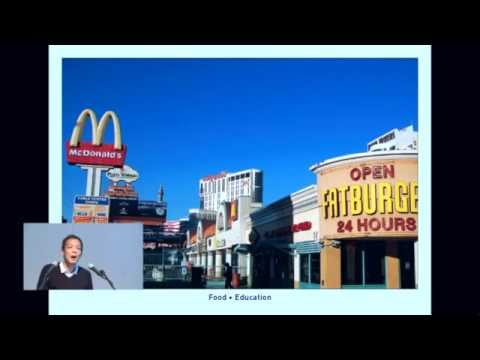
Lecture date: 2014-11-11
‘Food City’, the follow up to ‘Smartcities and Eco-Warriors’, explores the issue of urban transformation. Global in scope, the lecture and book address the frameworks of over 25 cities through the medium of food and how the city is governed. Food City investigates the reinstatement of food through a piece of polemic titled the ‘Food Parliament’ – how it can be a driver to restructure employment, education, transport, health, culture, communities, and the justice system, re-evaluating how the city functions as a spatial and political entity. The work investigates the urban consequences of food transparency, consumption and production.
CJ Lim is the Professor of Architecture and Urbanism at the Bartlett UCL, and the founder of Studio 8 Architects. His teachings and designs focus on multi-disciplinary innovative interpretations of cultural, social and environmental sustainability programs. His authored books include ‘Smartcities + Eco-warriors’ (2010), ‘Short Stories: London in two-and-a-half Dimensions’ (2011) and ‘Food City’ (2014), published by Routledge.
Details of the book:
In Food City, a companion piece to Smartcities and Eco-Warriors, innovative architect and urban designer CJ Lim explores the issue of urban transformation and how the creation, storage and distribution of food has been and can again become a construct for the practice of everyday life. Food City investigates the reinstatement of food at the core of national and local governance — how it can be a driver to restructure employment, education, transport, tax, health, culture, communities, and the justice system, re-evaluating how the city functions as a spatial and political entity. Global in scope, Food City first addresses the frameworks of over 25 international cities through the medium of food and how the city is governed. It then provides a case study through drawings, models, and text, exploring how a secondary infrastructure could function as a living environmental and food system operating as a sustainable stratum over the city of London. This case study raises serious questions about the priorities of our governing bodies, using architectural relationships to reframe the spaces of food consumption and production, analyzed through historical precedent, function and form. This study of the integration of food, architecture, and the development of future cities will both inspire and stimulate professionals and students in the fields of urban design and architecture.
source